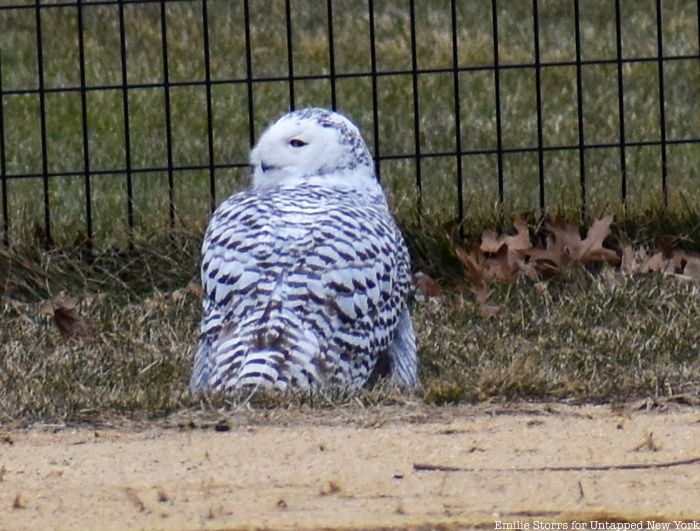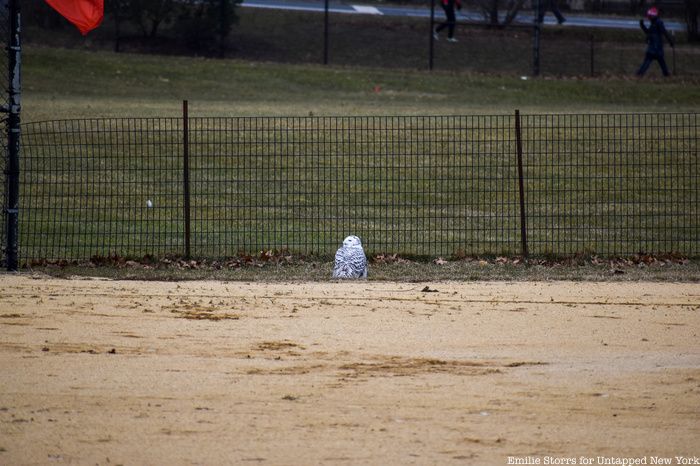Last Chance to Catch NYC's Holiday Notalgia Train
We met the voices of the NYC subway on our nostalgia ride this weekend!


Make way for the snowy owl! There’s no denying that New Yorkers share a love for both the concrete jungle and the animals that seem to miraculously thrive in it. Celebrity birds are nothing new — the mandarin duck was a multi-week phenomenon in 2018. The snowy owl in Central Park has its own claim to fame. The last recorded sighting of the species in Central Park was in 1890 (don’t reverse that and think, 1980. No, that’s 1890). The snowy owl (Bubo scandiacus) is usually found in the Arctic regions in either North America, Europe or Asia.

The snowy owl is quite distinguishable (and in fact, looks rather distinguished) with its white feather plumes and dark brown patterning. The snowy owl is migratory and is known to move en masse southwards. New York City is on the southern boundary of its normal winter migratory patterns and can be found more commonly out on the beaches of Long Island than in the city. But the species is also known to go even further south an “irruptive” migrations that can go as far south as Florida and Texas.

This particularly snowy owl took up temporary residence at the North Meadow ballfields on Wednesday morning. It was not long however when the crowds showed up. For its own self-preservation most likely (the snowy owl is listed as vulnerablea status), it fled the ballfields by the afternoon to avoid some fellow bird adversaries (crows and a red-tailed hawk), a drone, and all the gawkers.
Photographer Emilie Storrs was on hand with Untapped New York tour guide Beth Goffe, who is an avid birder, on Wednesday to document the snowy owl. Goffe tells us, ‘It was such an exciting moment for everyone who encountered her. As a bIrder, it was nice not having to trudge out to the beach to see this annual visitor. The snowy is a large, conspicuous bird (think Harry Potter’s Hedwig) so it was easy for non-birders to enjoy her presence from a safe distance behind the ball field fence. I hope she since moved on to a safer location. Unlike the humans, the resident hawks and crows weren’t pleased with her visit!”
For those that missed the snowy owl, the American Museum of Natural History just nearby has one on display that was shot by Theodore Roosevelt near his home on Long Island in 1876, and over 200 in storage. According to the museum, Roosevelt mounted the owl and added it to his self-made “Roosevelt Natural History Museum” he created at the age 8. He later became passionate about the preservation of birds. Roosevelt donated the snowy owl to the museum in 1911, where it can be found displayed in the Theodore Roosevelt Memorial Hall.
The animals of New York was the subject of a new book last year, Wild City: A Brief History of NYC in 40 Animals by Thomas Hynes, who will be giving a series of virtual talks for Untapped New York! The first talk, on Monday, March 29th, will cover the history of oysters. Tickets are just $10. You can also gain access to unlimited virtual events per month and unlock a video archive as an Untapped New York Insider starting at $10/month.
BOOK NOW
Next, check out the Secrets of Central Park!
Subscribe to our newsletter